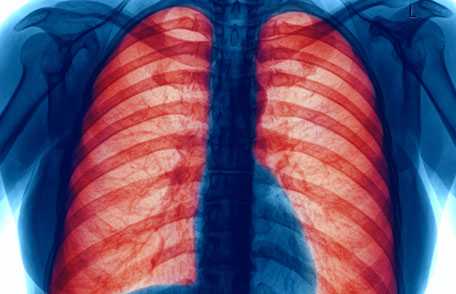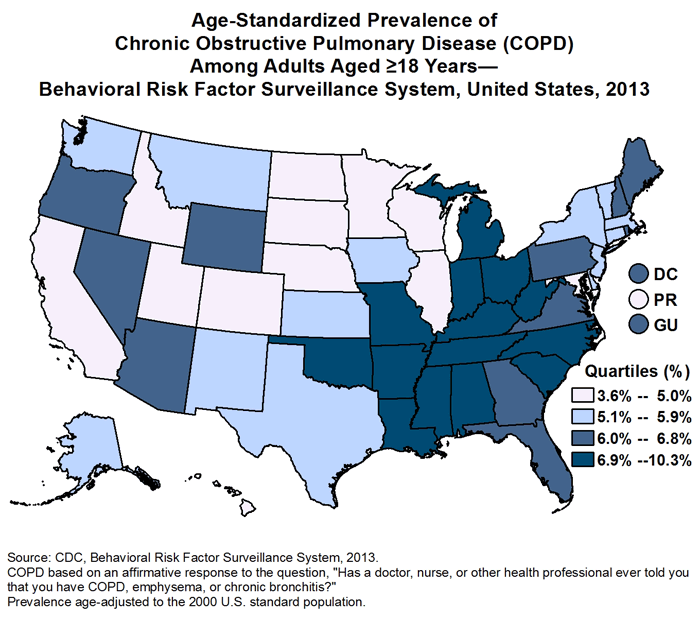The Burden of COPD

Managing COPD … It is possible!
Fighting for each breath is only part of the struggle for those living with Chronic Obstructive Pulmonary Disease (COPD). Chronic lower respiratory disease, primarily COPD, is the third leading cause of death in the United States. According to a new report released by the Centers for Disease Control and Prevention, COPD is linked to an increased number of people being unable to work and decreased activity. This outcome was even more pronounced for those who are current smokers and are physically inactive.
The Burden of COPD
- Adults with COPD are more likely to report being unable to work (24 %) than adults who do not have COPD (5%).
- Half of adults with COPD face activity limitations resulting from health problems compared to 17% of those who do not have COPD.
- More people with COPD (38%) report they have difficulty walking or climbing stairs compared to those who do not have the condition (11%).
- More people with COPD (22%) say they require the use of special equipment for health problems compared to 7% of adults without COPD.
Who is more likely to have COPD
- Older people
- American Indians/Alaska Natives
- Women
- Individuals with less education
- Current or former smokers
- Those with a history of asthma
Find out more about COPD

Map of age-standardized prevalence of Chronic Obstructive Pulmonary Disease (COPD) among adults aged more than 18 years, Behavioral Risk Factor Surveillance System, United States, 2013

COPD patients should make an effort to quit smoking.
What Can You Do
Health care providers can talk to their patients who smoke about quitting and provide cessation support. For more information on helping patients quit, health care providers may reference Treating Tobacco Use and Dependence and Tips to Help Your Patients Quit Smoking . In addition, all COPD patients are encouraged to consider participation in a pulmonary rehabilitation program, which combines patient education and exercise training. Learn more about pulmonary rehabilitation [181 KB].
References
- Wheaton AG, Ford ES, Cunningham TJ, Croft JB. Employment and activity limitations among adults with chronic obstructive pulmonary disease — United States, 2013. MMWR 2015;64(11):289-295.
- Page last reviewed: March 26, 2015
- Page last updated: March 26, 2015
- Content source:
- National Center for Chronic Disease Prevention and Health Promotion, Division of Population Health
- Page maintained by: Office of the Associate Director for Communication, Digital Media Branch, Division of Public Affairs




 ShareCompartir
ShareCompartir